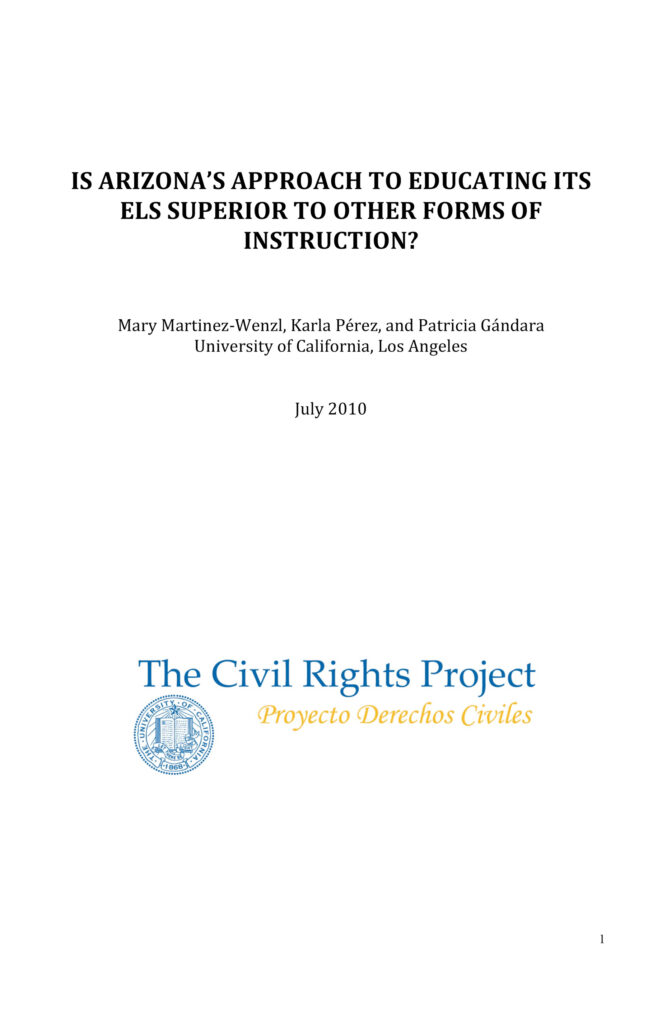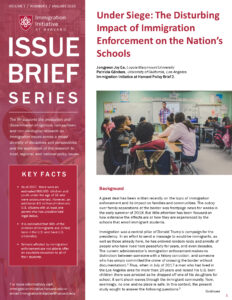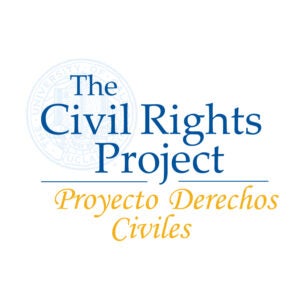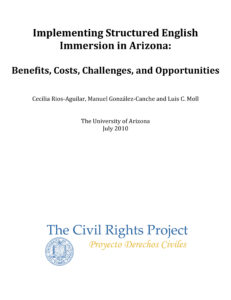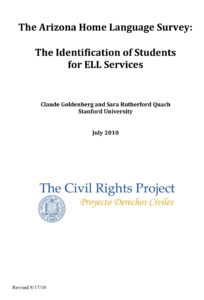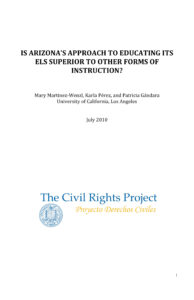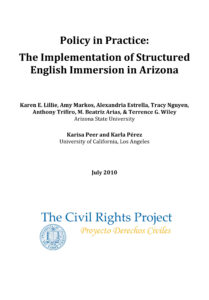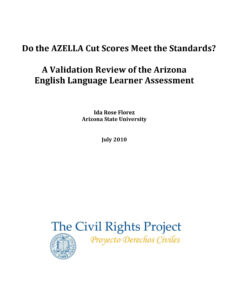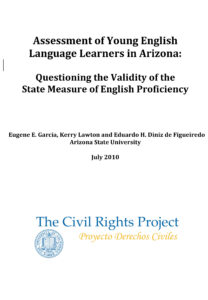This is one of nine papers of the Arizona Educational Equity Project: 21 senior scholars and advanced graduate students from four major research universities joined together, under the aegis of the Civil Rights Project at UCLA, to produce the studies on the condition of English learner students in Arizona.
Abstract:
In the Horne v. Flores Supreme Court decision of June 25, 2009, the Court wrote that one basis for finding Arizona in compliance with federal law regarding the education of its English learners was that the state had adopted a “significantly more effective” instructional model for EL students, that being Structured English Immersion (SEI). This paper reviews the extant research on SEI, its definitions, origins, strategies. The paper concludes that there is no research basis for the court’s conclusion, that at best SEI is no better or no worse than other instructional strategies when they are both well implemented and the goal is English acquisition. However, SEI as implemented in Arizona carries serious negative consequences for EL students stemming from the excessive amount of time dedicated to it, the de-emphasis on grade level academic curriculum, the discrete skills approach it employs, and the segregation of EL students from mainstream peers. Moreover, the paper argues that there are, in fact, strategies that can ameliorate these problems as well as provide an additive, rather than a subtractive, educational experience for English learner and mainstream students alike.
For more information on the series, view the Arizona Educational Equity Project Overview.
The Arizona Educational Equity Project grew from the class action lawsuit of Horne v. Flores, which was initially brought against the state of Arizona in 1992 on behalf of English language learners (ELLs) there. The case reached the U.S. Supreme Court, which issued a ruling on June 25, 2009, establishing new legal standards for the EEOA but also returning the case to the Federal District Court in Arizona, to examine Arizona’s instructional policies for ELLs. The issues argued in the Arizona court had important implications for the educational rights of the tenth of U.S. students classified as ELL and for the federal law that protects them. The challenge to the research community was to provide the best possible information on how ELL students were faring under current Arizona educational policies. The Civil Rights Project spearheaded the Arizona Educational Equity Project to generate the most up-to-date research on the equality of educational opportunity for English learners.
In compliance with the UC Open Access Policy, this report has been made available on eScholarship:
